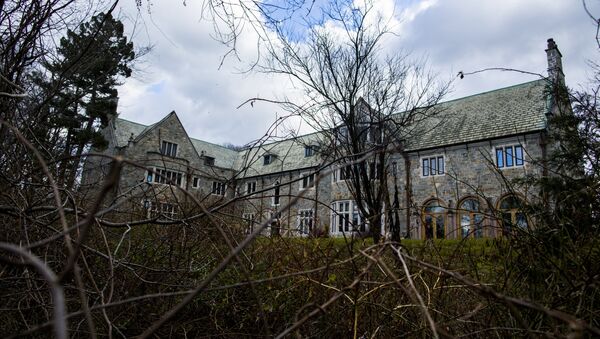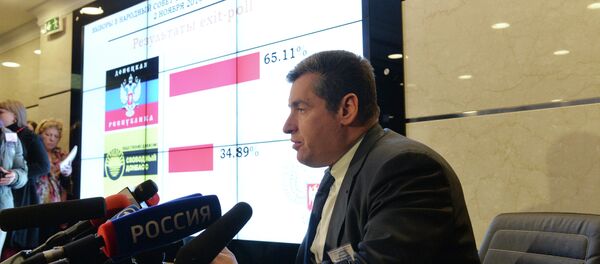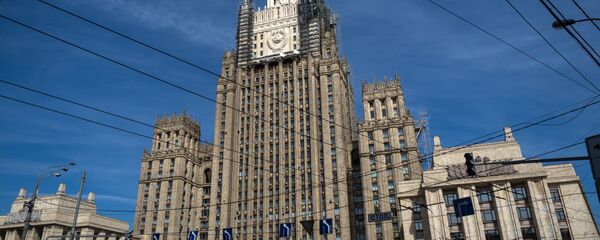By considering a release of the Russian diplomatic compounds that have remained sealed since December, Washington wants to leave the door open for rapprochement with Russia, Gorka said in an interview with CNN.
The statement followed a warning by Moscow that it is preparing a "tough response" to the move.
"We assume that this issue can be solved in a civilized way, within the framework of the law and probably humanly, given the emotions roiling in Washington," Russian Foreign Ministry spokeswoman Maria Zakharova said on air of the "60 Minutes" program on Rossiya 1 television channel.
She added that Russia had "different ways" to settle the issue, and that it would not give up its interests.
"If the US partners do not understand differently, we will at some point have to act in this direction," Zakharova said at her weekly briefing, noting that the "long pause" on the issue has "dragged on."
The issue was also addressed by Russia's Foreign Minister Sergei Lavrov, who said at a joint news conference with European diplomacy chief Federica Mogherini on Tuesday that Moscow is "outraged" over the fact that Washington has not yet resolved the situation with Russian diplomatic property in the US, adding that Moscow is working out its response to the US’ actions.
Russia's online newspaper Vzglyad reviewed what the latest developments might actually signal.
The website earlier suggested that there is an impression that a certain unofficial agreement on the issue has already been reached between Washington and Moscow which will allow the US to maintain the status quo, while Moscow will at last answer with responsive measures by expelling American diplomats and arresting US diplomatic property in Russia.
"Both sides are facing the same very task: first of all, preserve face, secondly, demonstrate to the other party that it is talking from a position of strength," the outlet says.
It further points out at a very interesting fact: the low rank of the US official who made the latest statement.
From the Russian side, the issue has been addressed by the Foreign Ministry and the Kremlin, while the rank of the Washington official was evidently lower.
"There is an impression that the White House is trying to solve a dual problem: on the one hand, demonstrate its position of strength in the relations with Moscow, on the other, it decreases the significance of the issue for bilateral relations. It is not the fact of the matter that either Tillerson or Trump could have voiced similar statements. Certainly, they could. Even more so, as both the President and the Secretary of State have recently made quite sharp public statements with regards to Russia," the newspaper says.
It further suggests that Washington might be expecting the tit-for-tat measures from Moscow any day now. In such a situation the risk of making fun of itself would be very high: as soon as it puts certain conditions to the Kremlin, it immediately provides a symmetric answer.
What is also of a particular interest, the newspaper says, is that Moscow still does not blame President Trump for the issue, while openly putting the blame on the US Department of State. The warning to not only expel US diplomats and arrest US diplomatic property, but to considerably cut the personnel of the US embassy in Russia looks like a measure which will backfire not on President Trump but on the State Department and its everyday work.
The outlet therefore suggests that the upcoming meeting between Russian Deputy Foreign Minister Sergey Ryabkov and US Under Secretary of State for Political Affairs Thomas Shannon should lead to specific results in the settlement of this very issue.
The next round of bilateral consultations on the Russian-US issues between Ryabkov and Shannon is planned to take place in Washington on Monday, July 17. The meeting was initially scheduled for June 23, but was subsequently postponed by Moscow due to the "lack of US readiness for the comprehensive discussion."






